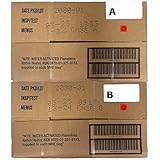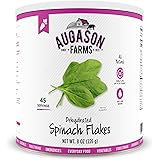How to Start Prepping on a Budget: Tips for Beginners
Budget-friendly prepping supplies
Alright, let’s talk about how you can get the best prepping supplies without breaking the bank. When I first started, I was totally clueless and thought I needed to buy everything all at once. Boy, was I wrong.
Firstly, always keep an eye on sales and discounts. You’d be surprised at how often big stores put essential items on clearance. Don’t overlook thrift stores and garage sales; sometimes, you can find hidden gems for next to nothing.
Secondly, prioritize multifunctional items. A good multitool can replace half a dozen different gadgets. Not only will this save you money, but it’ll also save you space which is crucial when you’re stockpiling.
Essential skills for beginner preppers
Learning various skills can greatly reduce the amount of money you need to spend on prepping. When I began prepping, I realized quickly that knowing how to do things myself was a huge advantage, especially on a tight budget.
First off, basic first aid is a must. You don’t need to be a doctor, but knowing how to dress wounds, perform CPR, and manage common injuries can save lives and reduce unnecessary medical expenses.
Next, focus on basic survival skills such as building a fire, purifying water, and making shelter. These can be lifesavers in emergency situations and usually don’t require expensive equipment.
Building a practical food stockpile
Food is one of the most critical elements in prepping, but it can also be one of the most expensive if you’re not careful. When I first started, I made the rookie mistake of buying all sorts of fancy survival foods. It wasn’t necessary.
Start by stockpiling affordable, non-perishable items like rice, beans, pasta, and canned goods. These items are budget-friendly and have a long shelf life, making them ideal for prepper stockpiles.
== > What if ... Get a FREE Subscription to PREPARE
Another tip is to buy in bulk. Buying larger quantities usually means a lower cost per unit, and you can often find great deals at warehouse clubs. Just make sure you’ve got adequate storage space to keep everything safe and organized.
Creating a prepping plan that works
Having a prepping plan is just as important as having supplies and skills. I learned this the hard way after accumulating a bunch of stuff with no real plan in place. Your plan doesn’t have to be overly complex, but it should be practical.
Your first step is to identify potential scenarios you’re prepping for. Whether it’s natural disasters, economic instability, or something else, knowing what to prepare for will guide your planning process.
Finally, involve your family or household in the planning process. Everyone should know the basics of what to do in an emergency, and it helps to have multiple people trained and knowledgeable about your prepping strategy.
Frequently Asked Questions
Q: What are some budget-friendly prepping supplies I can start with?
A: Begin with items like bottled water, bulk grains, canned foods, lighters, and a good quality multi-tool. These are cost-effective and versatile.
Q: Do I need to buy everything at once when I start prepping?
A: Not at all. Focus on acquiring essential items over time, which helps manage your budget and prevents overwhelm.
Q: What are the most important skills for a beginner prepper to learn?
A: Basic first aid, survival skills like fire-making and water purification, and basic mechanical or repair skills are essential.
Q: How can I include my family in my prepping plans?
A: Make sure everyone understands the emergency plan and knows where supplies are stored. Regularly practice drills and share knowledge about basic survival skills.






